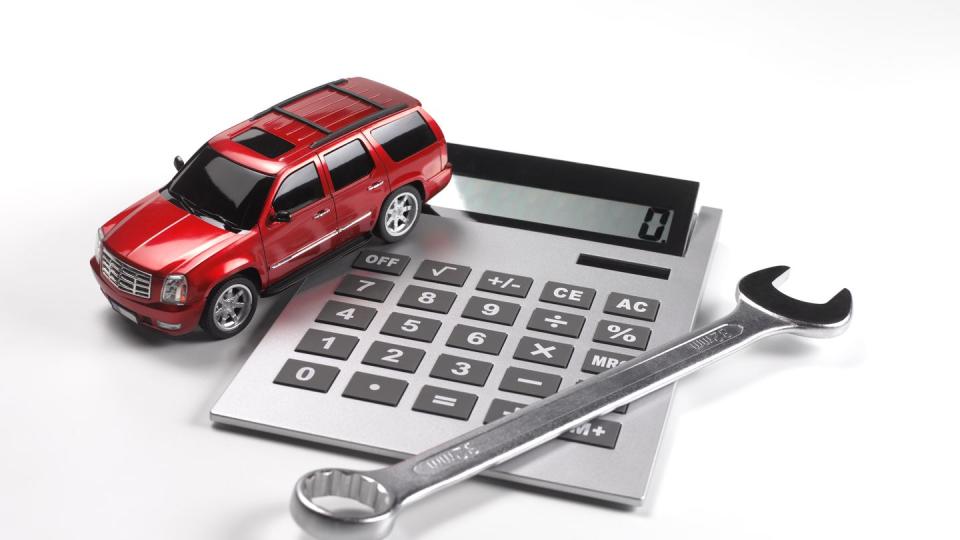Find Out How to Refinance Two Cars at the Same Time and Save Money

Refinancing your vehicles is an effective way to manage your auto loan obligations. You can refinance to lower your monthly payments, pay less in interest, or pay off your cars sooner than expected. Whatever your goal, smart refinancing may help you get there with less time and money invested. Best of all, you can refinance all your cars if you're in the right financial situation.
While refinancing can offer many benefits, it's not as simple as it seems. You should take the time to thoroughly explore your options before refinancing your vehicle to ensure that you're making a smart decision. Evaluating your finances and vehicles carefully will help you choose the most suitable option in this complex situation.
Can you refinance two cars at the same time? Sure. But is this the best option? That's a more complicated story.
Compare Auto Loans
What Is Auto Loan Refinancing?
Refinancing an auto loan is the process of replacing your existing car loan with a new one. You then use the new loan to pay off the existing debt for your vehicle. When you refinance a car loan, you can essentially start over with the loan process and enjoy new terms. If you're unhappy with your current auto loan, refinancing is likely the best option for fixing the situation.
If you purchased your vehicle in a hurry and used dealership financing without comparing your options, refinancing can help you remedy potential errors. However, you shouldn't take a loan carelessly because you can refinance later.
When Can I Refinance My Vehicles?
While auto loan refinancing may sound exciting, it's something that you should approach with great care. It's not always advisable or even possible to refinance your auto loan. You may not qualify for refinancing if:
Your vehicle has more than 100,000 miles.
Your vehicle is more than 10 years old.
Your current loan is less than six months old.
The car is worth less than what you owe on it.
Your credit score or income is lower than when you applied for the original loan.
You should also consider situations where you may technically qualify for refinancing, but it's not in your best interest. For example, some auto loans have a prepayment penalty. Your lender charges this fee if you attempt to pay off your loan earlier than scheduled. In most cases, you'll have to pay the prepayment penalty if you refinance. Consider whether the financial benefits of refinancing are greater than the expenses associated with this penalty.
When to Refinance a Vehicle
You may want to consider refinancing your vehicle if you can improve your financial situation by doing so. When your credit score or income has increased and you're eligible for better terms on a new loan than on your old one, it's a good time to refinance. Having a cosigner with a high income and credit score can also help improve your loan terms. However, your cosigner takes on the financial risk associated with the loan, so you should approach this arrangement carefully.
You may also want to refinance your vehicle if you have trouble making the monthly payments and can secure lower payments through a new loan. Both the interest rate on your loan and the total length of the loan help determine the amount of the monthly payment. There are many factors to consider when determining how much to pay each month. Lower payments free up more cash in the short term, but a longer loan means you'll pay more in interest.
For example, a $10,000 loan with a 3% interest rate costs $180 monthly over a 60-month term. Over that time, you'll pay $781 in interest. If you decrease the term for the same loan to 36 months, you'll pay $291 a month. However, your total interest decreases to $469. The shorter loan term saves you $312 over the life of the loan but increases your monthly payment by $39.
Consider your financial situation carefully before you refinance your auto loan so you can decide which terms are the most favorable. You don't want to sign on for more than you can pay each month, or you'll risk defaulting on the loan and losing your vehicle. However, if you can afford a higher monthly payment now, you'll free yourself from this loan entirely in a shorter period while spending less money overall.
Can You Refinance Two Cars at the Same Time?
Once you've explored the benefits of refinancing your vehicle, you may want to do this for every car you own. If you own more than one car, you're probably wondering if you can refinance two cars at the same time. The short answer is yes.
If you're in a good financial situation, there's nothing stopping you from refinancing two cars at once. The only drawback is that your credit score takes a small hit when you apply for a new loan. You may have already experienced this when you applied for your second car loan. If you purchased the second vehicle shortly after the first, your credit score was likely lower when your lender pulled it for the second loan.

 Yahoo Autos
Yahoo Autos 